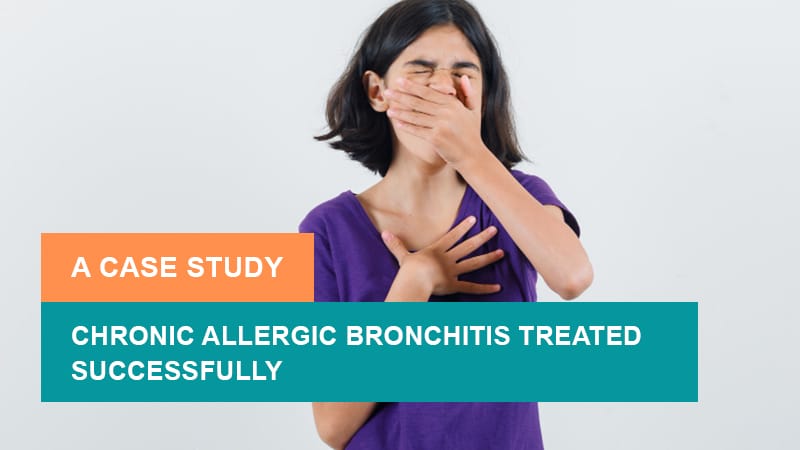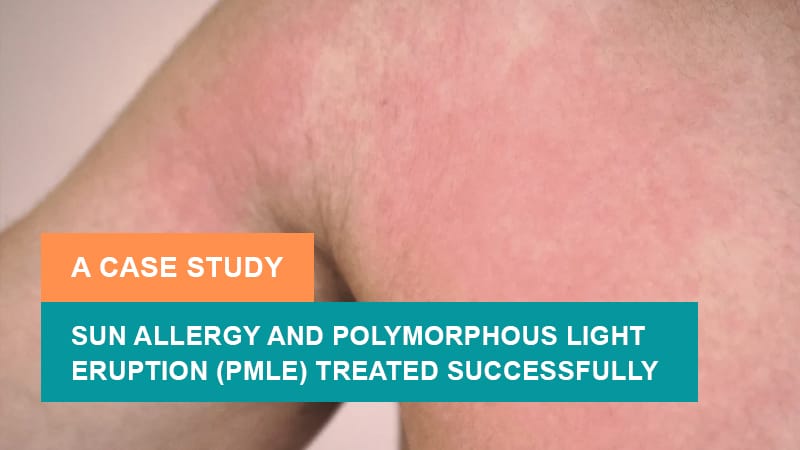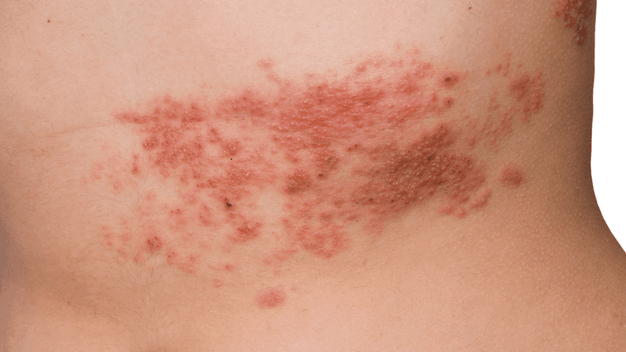On This Page
Introduction
Are you suffering and irritating from persistent growth in your intimate areas? Is your sexual life disturbed due to extra growth in your intimate area? Do you feel discomfort, or itching, due to small, flesh-colored bumps that won’t go away?
Have you tried various treatments, but the problem keeps returning? Are you worried about the long-term impact on your health and relationships? Do you want a natural, safe solution that addresses the root cause rather than suppressing the symptoms?
If this is your concern then, you might be dealing with Genital warts, a distressing condition caused by the human papillomavirus (HPV). Genital warts are also known as Condyloma Acuminatum, Anogenital Warts, Venereal Warts, etc. If small, soft growths in the Genital (Yoni) regions appear which can vary in size and shape then it is known as genital wart.
In Ayurveda, understanding of genital warts causes (Nidana) and pathology (Samprapati) is mentioned and this condition is correlated with conditions like Yoni Arsha and Charmkeel type that are skin lesions caused by Kapha and Rakta vitiation.
As per Ayurveda, these conditions arise due to an imbalance of Vata and Kapha Dosha mainly, in the body which results in the accumulation of toxins (Ama). Weak digestion (Mandagni), improper lifestyle habits, excessive intake of incompatible foods (Viruddha Aahara), and low immunity result in these abnormal growths.
Ayurvedic treatment for genital warts aims to detoxify the body, restore the dosha balance, and prevent the recurrence of the warts by use of detoxification therapies (Shodhana Karma), use of various herbs and local procedures like Agni Karma i.e. thermal cauterization, Kshara Karma, etc. to safely and effectively remove the genital warts. Along with this lifestyle and dietary recommendations are also given to individuals to prevent recurrence.
At IAFA Ayurveda, Dr. Sahil Gupta, an expert in Ayurveda, specializes in treating genital warts. He made a personalized treatment plan to the individual needs, ensuring long-term relief. If you are looking for safe, effective treatment for genital warts, Dr. Sahil Gupta at IAFA Ayurveda is the trusted name you can rely on.
What are Genital Warts?
Genital warts, also known as condyloma acuminatum, is a sexually transmitted infection which is caused by Human Papilloma Virus subtypes 6 and 11. In this disease, warts are formed which are single or maybe in clusters, flat or raised, resulting in discomfort, itching, and in some cases mild pain. Few cases of genital warts don’t have any symptoms at all. Genital warts can go away on their own but in many cases, they may persist and grow if left untreated.
What is Genital Warts – As Per Ayurveda?
In Ayurveda, genital warts can be correlated with conditions like Yoni Arsha and Charmkeel subtypes which are skin lesions caused by Dosha vitiation in the Rakta and Mansa Dhatu (bodily tissue).
As per Ayurveda, these conditions arise due to an imbalance of Vata along with Kapha, in the body which results in the accumulation of toxins (Ama). Weak digestion (Mandagni), improper lifestyle habits, excessive intake of incompatible foods (Viruddha Aahara), and low immunity result in these abnormal growths.
What is Human Papilloma Virus (HPV)?
Human Papillomavirus is the DNA virus that commonly results in sexually transmitted infections (STI) and mainly affects mucous membranes and skin. Maximum strains of HPV are harmless but few of them result in genital warts, certain types of cancer like vaginal, cervical, penile, etc. Mainly it is transmitted through skin-to-skin contact that may be oral, vaginal or anal.
In maximum cases HPV clears on its own and shows no symptoms HPV vaccination, practicing safe sex, medical screening, etc is highly effective in preventing infection.
What are the Types of Human Papillomavirus?
Human Papillomavirus has more than 200 strains which are classified as:
- Low-risk HPV type
- High-risk HPV type
1. Low-Risk HPV Type: These low-risk HPV strains do not result in cancer but may lead to genital warts and a few types of benign lesions. From low-risk HPV strains, HPV 6 and HPV 11 are responsible for 90% of genital warts. Other low-risk HPV strains are HPV 40, 42, 43, 44, 54, 61, 72, 81, etc.
2. High-Risk HPV Type: The high-risk strains are linked to anal, vaginal, cervical, vulvar, and oropharyngeal cancers. 70% of cervical cancers are due to HPV 16 and HPV 18 and these strains are also related to other types of cancers. Other high-risk strains are HPV 31, 35, 39, 45, 51, 52, 56, 58, 59 and 68.
Which HPV Type is Involved in Genital Warts?
Primarily the cause of genital warts are HPV-6 and HPV-11 which result in flesh-colored small growths in genital areas. Even though HPV-6 and HPV-11 are low-risk strains, they increase the risk of acquiring high-risk HPV.
Which Vaccine Protects Against HPV Strains for Genital Warts?
The HPV vaccine (GARDASIL 9) most widely used and recommended for protection against 9 HPV strains including HPV- 6 and HPV- 11. 90% HPV related strains are high type i.e. HPV 16, HPV 18, HPV 31, HPV 33, HPV 45, HPV 52, HPV 58, and Gardasil 9 helps to protect from it.
Who Should Get the HPV Vaccine?
It is recommended for girls and boys before sexual activity begins i.e. between 9-12 years. Its catch-up vaccination is available to up to 45 years of age. This helps to prevent genital warts and HPV-related cancers.
Who Gets Affected by Genital Warts?
Sexually active individuals, anyone who has vaginal, oral, or anal sex with an infected person, individuals with multiple sex partners, individuals having weak immune systems, teenagers, individuals who don’t use protection like condoms, pregnant women, etc. are mostly affected by genital warts. At some point, many people are exposed to the HPV virus but not everyone develops warts due to differences in their immune system response.
How Common are Genital Warts?
Genital warts are very common and as per the survey, approximately 10-20% have a genital infection due to HPV, and approx. 1% of individuals experience visible warts. Approximately 80% of those infected with HPV infection are between the ages of 17 and 33 years, with the peak age group between 20 to 24 years.
It has been estimated as per a survey that 2.9% of the male population in the US will have genital HPV DNA. About 2 in every 3 people who have sexual contact in any way, i.e. oral, anal, or vaginal with someone infected with genital warts will catch the virus. The incubation period of HPV is 3 weeks to 8 months, with most of the genital warts developing within 2–3 months after infection with HPV.
As per a survey in India, the prevalence of genital warts is approximately 1.07%, with higher rates in Delhi i.e. around 2.17%, and lower rates in Bangalore approximately 0.40%. Men in India are more likely to be affected than women, and the highest prevalence is seen in the age between 25- 29 years.
Types of Genital Warts
Based on their appearance and location genital warts are classified into several types:-
1. Exophytic Warts: The genital warts that occur singly or in clusters and typically appear near the external genitalia with small, flesh-colored bumps.
2. Flat Warts: The genital warts that are often found in women on the cervix or in men along the shaft of the penis with a smooth and slightly raised appearance.
3. Cauliflower-Like Warts: The genital wart that based on its texture, and bumpy surface resembles a cauliflower, clusters together, and becomes larger over time if untreated is known as a cauliflower genital wart.
4. Internal Warts: The warts that are not visible externally and are detected only by medical examination and develop inside the vaginal canal, cervix part, etc.
5. Giant Condyloma Acuminata: Giant condyloma acuminata also known as Buschke-Lowenstein Tumor is a rare form of genital wart. It is an aggressive form that grows extensively and results in tissue damage if not managed on time.
Genital Warts in Males
When small and fleshy growths occur which can be of skin-colored or pink or reddish on or around the penis, scrotum, groin, thighs, and anus then one can consider them genital warts in the case of men. In such cases, men will feel irritation, itching, and discomfort in the affected area and if the wart is irritated then bleeding may occur during sexual activity. In men, genital warts may result in difficulty in urination as they block the urethra. The most important risk factors of genital warts in males are unprotected sexual intercourse, multiple sexual partners, and weak immunity due to excessive smoking, alcohol intake, various infections, etc. Along with this genital warts can increase the risk of penile, anal, or throat cancer in males.
Genital Warts in Females
In women, genital warts commonly occur on the vagina, vulva region, cervix, perineum, or sometime around the anus. Genital warts may cause discomfort during sexual activity or urination otherwise they are painless. In female genital warts may result in a burning sensation in the genital region with increased vaginal discharges. If the cervix is affected, then abnormal bleeding may occur. Risk factors for genital warts in females are the same as males like sexual contact with an infected person, weak immune system, and most importantly poor genital hygiene. Along with this genital warts increase the chances of having cervical cancer, persistent infection, and increased chances of transmission of infection to the newborns.
Causes of Genital Warts
- Human papillomavirus infection especially HPV- 6, HPV- 11
- Skin-to-skin contact during sexual intercourse
- Unprotected sex
- Multiple sexual partners
- Weakened immunity system
- If suffering from other STIs i.e. sexually transmitted diseases
Causes of Genital Warts – As Per Ayurveda
- Intake of pungent (Katu), sour (Amla), and Lavana (salty) food.
- Intake of heavy meals (Guru Bhojana)
- Intake of Vidahi Ana
- Poor dietary habits like late-night eating
- Intake of dry meat (Sushaka Mansa)
- Excessive indulgence in sex (Ati-Vyavaya)
- Multiple sex partners (Par Stri, Par Purush Sehwas)
- Daytime sleeping (Diwa Swapana)
- Not maintaining local hygiene
Symptoms of Genital Warts
- Small, flesh-colored, or greyish or pink swelling in the genital area.
- The warts may be flat, raised, or in clusters like cauliflower.
- Persistent itching
- Discomfort during sexual intercourse
- Bleeding from the warts
- Excessive discharge or feeling of excessive moisture in the genital area especially when suffering from internal warts,
- Painful urination may result if the wart grows near the urethra.
- HPV sometimes affects the individual without having warts which may result in unawareness of the infection.
Symptoms of Genital Warts – As Per ayurveda
- Nodular growth (Charmkeel or Granthi)
- Itching (Kandu)
- Bleeding (Rakta Strava). If the wart is irritated or ruptured, Pitta aggravation results in bleeding.
- Suppuration (Paka)
- Burning sensation (Daha)
- Swelling and discomfort (Shotha)
Diagnosis of Genital Warts – As Per Ayurveda
As per Ayurveda, the diagnosis of genital wart is done by a five-fold examination in which the first visual examination (Darshana Pariksha) is done to observe wart-like growth and skin texture. After that touch examination (Sparshana Pariksha) is done to check the texture, and tenderness of the growth or to check whether the affected area is dry and rough (in the case of Vata dominant warts) and moist and soft in the case of Kapha dominant warts.
Along with this history taking or questions (Prashan Pariksha0 are asked from the patient about their sexual history, personal hygiene, associated symptoms, etc. for Dosha imbalance pulse diagnosis (Nadi Pariksha) is also done. For checking systemic involvement urine and stool examination (Mutra and Mala Pariksha) is also done. From the modern side acetic acid tests, HPV DNA testing, colposcopy (in the case of women), biopsy or PCR test, etc. is done.

Have A Health Issue?
Consult Online
- Dr. Sahil Gupta (B.A.M.S., M.H.A.)
Ayurvedic Allergy Specialist
CEO & Founder of IAFA®
At last, Easier Genital Warts Management

Trusted by
More than 90,000 Patients

Convenient
at-Home Treatments

9.2 / 10
Customer Satisfaction Score
Genital Warts Ayurvedic Treatment
IAFA Ayurveda by Dr. Sahil Gupta (BAMS, MHA) will provide you with the best Ayurvedic treatment for genital warts which not only provides relief but also safety. Ayurveda treats genital warts by balancing aggravated Doshas i.e. Kapha and Vata by eliminating toxins (Ama), and by boosting the immunity of the individuals which prevents the recurrence.
Various Ayurvedic therapies like alkaline cauterization (Kshara Karma), Agnikarma, and bloodletting therapy (Rakta Mokshana), etc. help in wart removal and detoxification (Shodhana) of the body.
Various powerful Ayurvedic herbs like Turmeric, Neem, Kanchanar, etc. that possess antiviral and immune-boosting properties help to fight HPV naturally. Along with this various lifestyle, dietary modifications along with Yoga are recommended to individuals at IAFA Ayurveda. The Ayurvedic approach that is used to treat genital warts is as follows:-
Detoxification Therapy (Shodhana Therapy) for Genital Warts
1. Purgation Therapy (Virechana) – Therapeutic purgation is done in genital warts patients after proper oleation (Snehana) and sudation (Swedana) therapy with the help of various herbs and formulations like Aragwadha (Cassia fistula), Triphala Churna, Avipattikar Churna, etc. to cleanse the digestive tract and remove the accumulated toxins (Ama) from the body, boost immune response which helps in HPV infection.
2. Medicated Enema Therapy (Basti) – In this process, medicated oil or decoctions are administered through the rectum like Niruha Basti, Tikta Ksheera Basti, etc. which enhance immunity, promote healing in genital warts especially internal genital warts.
3. Bloodletting Therapy (Rakta Mokshana) – In bloodletting therapy with the use of various techniques like leech therapy (Jalaukavacharana) or controlled venesection (Prachna) is done for the removal of impure blood from the body. This therapy is required especially when genital warts are recurrent, associated with excessive Kapha and Pitta, and are highly inflamed. It does not help in detoxification of the body but reduces viral growth and strengthens the immune system which is very important to treat genital warts.
4. Alkaline Cauterization (Kshara Karma) – In this procedure, specialized alkali (Kshara) is prepared from herbs like Apamarga (Achyranthes aspera), etc., and then that alkali is applied over the genital wart. This will help in destroying abnormal tissues and is the painless technique for removing genital warts without any significant bleeding, or pain it also prevents recurrence and promotes healing of the affected area. This Kshara Karma is mainly used in the case of external genital warts which are large and stubborn.
5. Thermal cauterization (Agni Karma) – In this procedure herbal cautery or heated metallic instrument is applied over the warts which burn them and destroy them. Karma is mainly used when the genital warts are hard, raised and their recurrence occurs again and again after the use of other treatments. This Agni Karma is very effective in stopping further spread of genital warts by drying them up.
6. Supportive Therapies (Use of Paste – Lepa) – Local application of various pastes like Haridra, Neem, Aloe vera, etc. is done for wart reduction.
Herbs for Genital Warts
Herbs for Genital Warts Ayurvedic Treatment includes Bhallataka (Semecarpus anacardium), Kanchnar (Bauhinia variegata), Haridra (Curcuma longa), Neem (Azadirachta indica), Guduchi (Tinospora cordifolia), Manjistha (Rubia cordifolia), Khadir (Acacia catechu), Amla (Embelica officnalis), etc.
These herbs possess antiviral, antioxidant, anti-inflammatory, immunomodulatory, detoxifying, and Tridosha pacifying properties which reduce abnormal tissue growth, prevent warts formation, boost immunity, promote skin regeneration, reduce stress, soothe inflammation, promote healing, etc.
Along with this Panchavalkala which consists of Vata, Udumbara, Palaksha, Paressha, and Pippala is also used in the form of decoction (Kashaya) and has anti-inflammatory, antimicrobial, and analgesic activity thus it prevents secondary infection in the post-surgical wound of genital warts and promotes wound healing.
Gem Therapy for Genital Warts
Few stones are recommended to wear in genetic warts, as per Vedic Astrology. These stones can be worn after proper consultation with an astrologer as per your birth date, Zodiac sign, etc. to get only benefits.
As per astrology, Yellow sapphire (Pukhraj), Red coral (Moonga), Moonstone (Chandra Kant), and Emerald (Panna) can be worn as per your natal chart if you are suffering from genital warts. These stones help in balancing Vata and Kapha, calm the mind, reduce stress, promote blood circulation, improve immunity, etc.
Diet and Lifestyle Guidance (Pathya-Apathya) for Genital Warts
According to Ayurveda, if your diet is correct then medicine is of no use because a good gut is considered as the basis of a healthy individual. So, by giving attention to our daily diet, we not only get relief from the diseases from which we suffer but also avoid the upcoming diseases. Below we mention some dietary and lifestyle guidelines that one can follow for genital warts:-
What to Do (Pathya) in Genital Warts?
- Maintaining proper hygiene is mandatory and keeps the genital area clean
- One should have dinner and sleep at the appropriate time (Ratricharya)
- Light food that is easy to digest should be taken (Laghu Aahara)
- A nutrition-rich diet that contains vitamin C, zinc, etc. should be taken.
- Get vaccinated against HPV to reduce the risk of having genital warts.
- Practice safe sex.
- Use condoms while having sex.
- Regular health checkups are necessary.
- For detoxification one can take Triphala Churna every day during the nighttime.
- Yoga, meditation, and exercise should be done regularly
What to Avoid (Apathya) in Genital Warts?
- Avoid heavy meals (Guru Bhojana)
- Avoid incompatible food (Virrudha Aahara)
- Intake of sour (Amla), spicy (Katu) and salty (Lavana) food should be avoided.
- Excessive sexual activity should be avoided.
- Multiple sex partners should be avoided.
- Early signs of recurrence should not be ignored.
- Avoid wearing tight and synthetic clothes.
- Alcohol and smoking should be avoided.
- Anger and anxiety (Krodha and Shoka) should be avoided.
Yoga Asanas for Genital Warts
Various Yoga Asanas like Cobra pose (Bhujangasana), Bow pose (Dhanurasana), Camel pose (Ustrasana), Lotus pose (Padmasana), Legs up the wall pose (Paschimottanasana), Deep breathing technique (Pranayama), Meditation, etc. can be used in genital.
These Yogic Asanas enhance blood circulation, aid in stress reduction, strengthen the pelvic region, stimulate the reproductive organs, etc.

Frequently Asked Questions
Question: Can Toothpaste Remove Warts?
Answer: No, toothpaste is not proven and effective for treatment of warts. It should be avoided as it may cause skin irritation and also it is not able to eliminate the virus.
Question: How to Remove Genital Warts Fast?
Answer: Modern medical treatments like cryotherapy, laser therapy, or prescription antiviral creams can remove genital warts quickly. In Ayurvedic surgical procedures like Agni Karma, Kshara Karma, panchakarma therapy like Rakta Mokshna, virechana, etc., and use of various herbs like Neem, Turmeric, Kanchnara, etc. can be used.
Question: How to Treat Human Papillomavirus (HPV) Naturally?
Answer: Strengthening the immune system with herbs like Guduchi, Ashwagandha, and Neem, practicing safe sexual habits, avoiding multiple sexual partners, healthy eating habits, and maintaining hygiene can help manage HPV naturally. Along with this one can go through detoxification (Panchakarma) therapies like Virechana and Rakta Mokshana also aid in detoxification.
Question: How to Get Rid of Human Papillomavirus Infection?
Answer: There is no permanent cure for HPV, but vaccination, a strong immune system, antiviral treatments, dietary, and lifestyle modifications, yoga therapy, etc. can help control the virus and prevent complications.
References
- Baria, Pragna & Dudhamal, Tukaram. (2020). MANAGEMENT OF PERINEAL AND PERIANAL WARTS THROUGH AYURVEDA: A CASE REPORT. AYUSHDHARA. 85- 88. 10. 47070/ ayushdhara. v7- iSupply1. 618.
- Mohta A, Jain SK, Kushwaha RK, Singh A, Gautam U, Nyati A. Estimating the Impact of Extragenital Warts versus Genital Warts on Quality of Life in Immunocompetent Indian Adult Patients: A Comparative Cross-Sectional Study. Indian J Dermatol. 2021 Jan- Feb; 66 (1): 44- 48. Doi: 10. 4103/ ijd. IJD_290_19. PMID: 33911292; PMCID: PMC- 8061486.
- Sekhar Namburi UR, Omprakash, Babu G. A review on the management of warts in Ayurveda. Ayu. 2011 Jan; 32 (1): 100- 2. doi: 10. 4103/ 0974- 8520. 85739. PMID: 2213- 1766; PMCID: PMC- 3215404.
- Achdiat PA, Yunitasari, Usman HA, Maharani RH. A Case of Genital and Extragenital Warts Unresponsive to Immunotherapy Using Measles, Mumps, Rubella Vaccine. Int Med Case Rep J. 2023 Nov 15; 16: 739- 746. doi: 10. 2147/ IMCRJ. S426665. PMID: 38020581; PMCID: PMC- 10657768.
- Kore VB, Anjankar A. A Comprehensive Review of Treatment Approaches for Cutaneous and Genital Warts. Cureus. 2023 Oct 25; 15 (10): e47685. doi: 10. 7759/ cureus. 47685. PMID: 38022045; PMCID: PMC- 10673707.
- Yanofsky, Valerie & Patel, Rita & Goldenberg, Gary. (2012). Genital warts: A comprehensive review. The Journal of clinical and aesthetic dermatology. 5. 25- 36.
- Patel H, Wagner M, Singhal P, Kothari S. Systematic review of the incidence and prevalence of genital warts. BMC Infect Dis. 2013 Jan 25; 13: 39. doi: 10. 1186/ 1471- 2334- 13- 39. PMID: 23347441; PMCID: PMC- 3618302.
- Lynde C, Vender R, Bourcier M, Bhatia N. Clinical features of external genital warts. J Cutan Med Surg. 2013 Dec;17 Suppl 2: S55- 60. PMID: 243- 88559.
- Leung AK, Barankin B, Leong KF, Hon KL. Penile warts: an update on their evaluation and management. Drugs Context. 2018 Dec 19; 7: 212563. doi: 10. 7573/ dic. 212563. PMID: 30622585; PMCID: PMC- 6302884.
- Gundeti MS, Reddy RG, Muralidhar JV. Subcutaneous intralesional Ksharodaka injection: A novel treatment for the management of Warts: A case series. J Ayurveda Integr Med. 2014 Oct-Dec; 5 (4): 236- 40. doi: 10. 4103/ 0975- 9476. 146558. PMID: 25624698; PMCID: PMC- 4296436.
- Yanofsky VR, Patel RV, Goldenberg G. Genital warts: a comprehensive review. J Clin Aesthet Dermatol. 2012 Jun; 5 (6): 25- 36. PMID: 2276- 8354; PMCID: PMC- 3390234.
- Kumar, Mahesh. (2024). CASE REPORT ON AYURVEDIC MANAGEMENT OF CHARMAKEELA (PERIANAL WART). European Journal Pharmaceutical and Medical Research. 11. 660- 663.
- Bhat, Gayathri & S, Lakshmi. (2017). MANAGEMENT OF YONI ARSHA (GENITAL WARTS) BY AGNIKARMA: A CASE STUDY. International Journal of Research in Ayurveda & Pharmacy. 8. 170- 171. 10. 7897/ 2277- 4343. 082106.
- Surendran, Emy & G.N, Sree Deepthi. (2019). International Journal of Ayurveda and Pharma Research Case Study MANAGEMENT OF GENITAL WARTS THROUGH AYURVEDA-A CASE REPORT. International Journal of Ayurveda and Pharma Research, 7 (3), 39- 41. Retrieved from https:// ijapr. In/ index. Php/ ijapr/ article/ view/ 1162.
- Swetha Naik A D Et Al: Ayurvedic Management of Genital Warts -A Case Study. International Ayurvedic Medical Journal 2017.
Seek Expert Advice
Are you tired of the recurrence of genital warts again and again? Do you experience discomfort and irritation during sexual activity due to genital warts? If various treatments have failed to provide relief, it’s time to explore IAFA Ayurveda.
At IAFA Ayurveda, Dr. Sahil Gupta offers expert care for genital warts, combining Ayurvedic detoxification therapies, surgical procedures like Kshara and Agni Karma, etc., and herbal remedies to not only treat the condition but also prevent recurrence by boosting your immunity.
Don’t Let Genital Warts Affect Your Confidence and Well-being. Get Personalized Treatment at IAFA Ayurveda and Experience Long-Lasting Relief!
Book Your Appointment to Consult with Our Health Experts Now!
Was this Page Helpful?
So, IAFA’s Root-Cause Treatment for Genital Warts is Just 3 Steps Away!

01. Connect With Us
Share your history of illness or Book your appointment

02. Consult With Us
Dr. Gupta a certified Ayurvedic Allergist Consultant

03. Root Cause Treatment
Get an accurate diagnosis, medicines, diet & lifestyle change
Real Case Studies – Successfully Treated Patients
Real Case Studies of Successfully Treated Patients from All Around the World by IAFA Ayurveda®

5-Year-Old Shih Apso Dog Recovered from Canine Peripheral Neuropathy – A Case Study
This case study presents a 5-year-old Shih Tzu-Lhasa Apso crossbreed dog (pet)…

9 Year Old Female Patient Recovered from Chronic Allergic Bronchitis – A Case Study
This case study presents a 9-year-old female patient who has successfully recovered…

12-Year-Old Child Recovered from Sun Allergy and Polymorphous Light Eruption (PMLE) – A Case Study
This is a case study of a 12-year-old child who has successfully…

40-Year-Old Female Patient Recovered from Dyshidrotic Eczema and Onychomycosis – A Case Study
This case study highlights the successful recovery of a 40-year-old female patient…
Read More Articles

Herpes Zoster (Shingles)
Discover Ayurvedic treatment for Herpes Zoster (Shingles), including herbs, causes, symptoms, and…

Genital Warts
Discover effective Ayurvedic treatment for genital warts, including causes, symptoms, and natural…

Hypothyroidism
Learn about Ayurvedic treatment for hypothyroidism, including its causes, symptoms, and natural…












